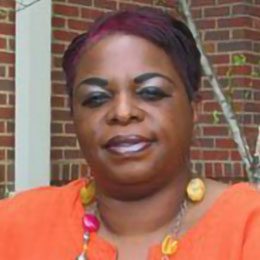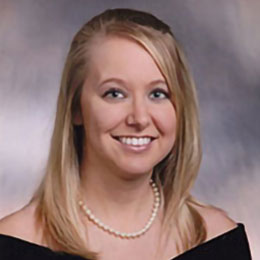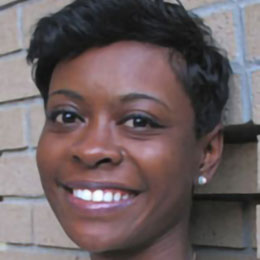
Clinical Mental Health Counseling
Master of Arts in Clinical Mental Health Counseling
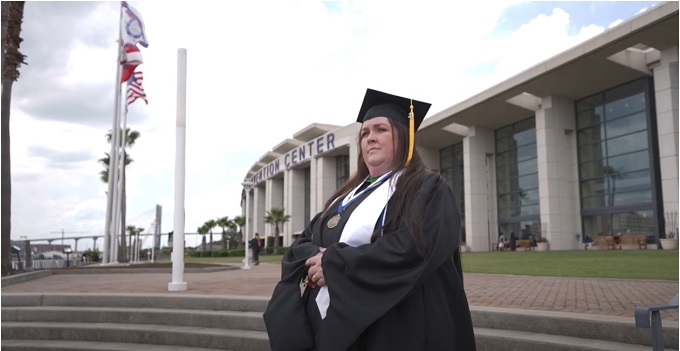
With a focus on gaining experience through coursework, South University’s Master of Arts in Clinical Mental Health Counseling prepares students to become compassionate professional counselors. The master’s degree in counseling holds itself to a professional standard through classes that follow the comprehensive studies of theories and principles, dynamic applications in the field, training in effective assessment and treatment practices, a thorough understanding of the significance of research in the field and competence in ethical, legal, and professional standards.
The Master of Arts in Clinical Mental Health Counseling is designed to prepare graduates to sit for licensure in their state and the opportunity to become certified as a National Certified Counselor by the National Board for Certified Counselors*.
The South University West Palm Beach (WPB) campus relinquished its Clinical Mental Health Counseling (CMHC) programmatic accreditation with the Council for Accreditation of Counseling and Related Education Programs (CACREP) on March 31, 2023. While we plan to re-seek accreditation under a new delivery modality, it will not occur until late 2023.
* It is up to each student to review the national and state licensure requirements for licensure, as well as the eligibility criteria to sit for licensure exams. South University cannot guarantee each graduate will pass the required licensure examinations. Outside agencies control the requirements for taking and passing certification/licensing exams and are subject to change without notice to South University.
South University does not promise or guarantee employment.
Council for Accreditation of Counseling and Related Educational Programs
The South University, West Palm Beach (WPB) campus relinquished its Clinical Mental Health Counseling (CMHC) programmatic accreditation with the Council for Accreditation of Counseling and Related Education Programs (CACREP) on March 31, 2023. The program submitted the CACREP accreditation application for program consideration in December 2023. South University, West Palm Beach is now in an “in process” status, as noted in the CACREP program directory. Accreditation is a multi-step process, and the term “in process” means that the application for accreditation is being desk reviewed by CACREP reviewers to determine if the supporting materials submitted by the program meets each CACREP standard. If determined our program meets the CACREP standard during the desk review, the next step is to respond to any addendums requested by the desk reviewer and then host a CACREP site visit where the site reviewers will evaluate the program and make a recommendation to the CACREP Board of Directors regarding the granting of accreditation.
By selecting to enroll in the WPB CMHC program, you understand you are enrolling in a CMHC program that is seeking programmatic accreditation, but is not currently programmatically accredited. You also understand that with our reapplication for accreditation submitted in late 2023, we cannot guarantee you would graduate from an accredited program as the CACREP accreditation process can take 18 to 24 months from the time of application. The state of Florida is requiring graduates sitting for licensures to graduate from an accredited program as of July 1, 2025. South University cannot guarantee you will be eligible to sit for the licensure exam.
Admission Requirements
Procedure for Admission to the Master of Arts in Clinical Mental Health Counseling Program
Admissions criteria for the Master of Arts in Clinical Mental Health Counseling program are consistent with those required in other master's degree level programs at South University. As the admissions process also takes into consideration the characteristics deemed essential to becoming a clinical mental health counselor, material is also required which will enable a determination to be made of the applicant's personal integrity, maturity, interpersonal skills, and ability to communicate effectively. The criteria used in determining admission to the graduate program include:
- Completion of a bachelor's degree from an accredited institution.
- A grade point average of at least 2.7 (on an Admissions scale of 4.0) for the last 60 semester hours/90 quarter hours of coursework (including relevant graduate work), or, a bachelor's degree with an overall CGPA of 2.7, or, an earned graduate degree from an accredited institution with a CGPA of 3.0 or higher.
- A minimum score on a South University preapproved English language proficiency test is required for all applicants whose "first" language is not English as specified in the English Language Proficiency Policy.
- Interview with the Clinical Mental Health Counseling department chair/program director or designated faculty member.
- Approval of the campus program admissions committee.
- Completion of an application for admission.
- Submission of a personal/professional statement addressing the applicant's interest in counseling, professional goals, along with a self-appraisal of academic and professional qualifications.
- Submission (within 5 weeks* of class start dates) of official transcripts from all postsecondary institutions attended.
- Current résumé (or career summary).
- Background Check
All required admissions documentation and criteria will be reviewed and evaluated. Applicants will be notified regarding acceptance. Applicants should review the published general graduate requirements listed in the South University catalog. Students who are citizens of countries other than the United States should also refer to the section in the South University catalog entitled International Student Admissions Policy.
*Effective August 14, 2023 – Students beginning classes at Online Programs will have five weeks to submit acceptable documentation.
Provisional Admission
Applicants with an undergraduate degree CGPA of less than a 2.70, but not lower than 2.30, for the last 60 semester hours/90 quarter hours of coursework (including relevant graduate work), or, a bachelor's degree with an overall CGPA of 2.70, but not lower than 2.3, or, an earned graduate degree from an accredited institution with a CGPA of less than 3.00, but not lower than a 2.70, will be considered for provisional admission. Students who do not attain a 3.00 GPA in the first quarter will be dismissed. Students cannot appeal the dismissal from the university as a result of failure to meet the conditions of provisional admission.
The applicant will need to provide evidence of academic and professional potential demonstrated by career and/or personal accomplishments indicated in a personal statement of academic and professional goals, a career resume or curriculum vita, and two letters of academic and/or professional recommendations. The Program Chair in consultation with the Campus Director & Dean of Academic Affairs and Operations and College Dean or designee must approve exceptions. The College Dean serves as the final decision maker. Students are required to complete the provisional admissions form for entry as a provisional admission student.
For additional admissions information please see the admissions section here.
Course Requirements
Curriculum for West Palm Beach campus only
Curriculum for West Palm Beach campus only
Mission, Goals & Outcomes
Offered at West Palm Beach.
Program Overview
The South University Master of Arts degree program in Clinical Mental Health Counseling is intended to meet the local and regional need for qualified counselors. The Master of Arts in Clinical Mental Health Counseling is designed to provide advanced and broad training for South University graduate students regarding theories, principles, and dynamic applications in the field. Students develop the skills necessary to engage in effective assessment and treatment practices, achieve competence for ethical, legal, and professional issues, and understand the significance and utility of research to the field. Faculty members are dedicated to maintaining high teaching standards, developing intellectual curiosity, advancing critical thinking, and engaging in service to the University, community, and profession.
The primary goals of the program are as follows:
- Promote the development of broad and comprehensive knowledge of the field of Clinical Mental Health Counseling.
- Promote critical/analytical thinking regarding concepts and applications in the field.
- Promote a thorough understanding of mental health assessment and treatment.
- Raise awareness of professionalism and issues impacting the profession.
The program is designed to provide an opportunity for its graduates to achieve initial eligibility criteria to become licensed in their state and certified as a National Certified Counselor (NCC) by the National Board for Certified Counselors (NBCC). The length of the Clinical Mental Health Counseling program varies in accord with the licensing requirements of the states in which the program is offered. As a result, the program may not meet the licensing requirements of all states. The student should contact the licensing board in the state in which they anticipate seeking licensure to determine the appropriate program. By way of illustration, the track offered at the Columbia campus is 91 credit hours and is designed to meet current state requirements for counseling programs in South Carolina. The program is 91 credit hours at the Austin, Richmond, Savannah and Virginia Beach campuses, which is designed to meet current licensure requirements for counseling programs in Texas, Georgia and Virginia. The state of Florida offers licensure for Counselors in Mental Health Counseling and also requires extra classes in Human Sexuality and Treatment of Substances Abuse. Therefore, the track offered at the West Palm Beach campus is 95 credit hours, which is designed to meet current state licensure requirements. After becoming licensed as a Mental Health Counselor in Florida for three years, dual licensure can be pursued through attaining a License as a Marriage and Family Therapist by taking the LMFT state exam.
The delivery structure of the program provides the opportunity for students who wish to balance the rigors of work and home while pursuing their master's degree. Although delivery will vary by campus location, classes generally meet during the week in the evenings and Saturdays as needed. The program is designed for students to complete the curriculum in 10 quarters (the program is offered in 8 quarters, but the majority of students complete in 10 quarters). Each quarter, classes will be held on a weekly basis for a 10 week period with the 11th week designated for final exams.
Students who enroll in the program will be taught via two primary modes of instruction. The majority of the program will involve didactic and experiential classroom instruction. The second mode of instruction will focus on supervised field experiences. Students will be placed in actual counseling settings in the community and will practice counseling under the auspices of an onsite supervisor. Students in field placements will also receive weekly individual and group supervision from qualified faculty supervisors.
The objectives of the South University Clinical Mental Health Counseling program are to recruit eligible students from all areas and provide fair and equitable admissions criteria; make available a variety of instructional models and resources to provide the student with the most effective learning arrangements and to provide appropriate learning opportunities for counseling students that will prepare them to perform their expected competencies in an ethical, legal, safe, and effective manner upon graduation; prepare counseling students to communicate effectively; instill the importance and value of continued education and involvement in appropriate professional and community affairs after graduation; and encourage the counseling students to recognize their own strengths and limitations.
Program Student Learning Outcomes
Graduates will be able to:
- Professional Counseling Orientation and Ethical Practice: Demonstrate knowledge and application of all aspects of professional functioning, to include ethical standards, legal implications, advocacy and social justice, counselor roles, and professional credentialing.
- Social and Cultural Diversity: Demonstrate the ability to apply multicultural research and core theory to issues and relationships in the context of culturally competent counseling.
- Human Growth and Development Through the Lifespan: Apply research and core theory to the needs of diverse individuals across the lifespan, to include atypical personality and neurological development, addictive disorders, family and social relationships, and crisis response.
- Lifestyle and Career Development: Demonstrate implementation of research and core theory related to the processes of decision-making in career development and planning in the context of the psychology of work.
- Counseling and the Helping Relationship: Demonstrate knowledge and skill application of the major theories of change, consultation practices, diagnostic impressions, and evidence-based interventions to a diverse clientele for the delivery of effective and ethical treatment.
- Group Dynamics and Group Work: Apply culturally appropriate group skills, techniques, and theory-based interventions in the context of group counseling dynamics while exploring effective facilitation styles.
- Assessment and Appraisal: Analyze historical and current testing and assessment methods for implementing ethical and accurate appraisal of diverse clients by individual or group methods.
- Research and Program Evaluation: Apply needs assessment, program evaluation, and research methods to ethical and effective practice and to add to the body of literature in the counseling profession.
Courses are taught according to the matriculation sequences provided by each campus and at the discretion of the school. Courses must be attempted in the curriculum sequence as defined by each campus. Curriculum content and sequence are subject to change with notification.
Core Faculty
West Palm Beach Campus Core Faculty
Bridget Glass, Ph.D., LMHC, ACS
Program Director
Dr. Bridget Glass is a licensed Mental Health Counselor and Approved Clinical Supervisor specializing in the treatment of childhood trauma, relationship abuse, and workplace distress in the helping professions. She received a Master’s degree in Mental Health Counseling and Marriage, Family, and Couple Therapy and a Doctorate in Counselor Education and Supervision. Dr. Glass currently serves as a private practitioner; however, her clinical experience extends to community settings such as schools and women’s shelters. She has provided consultation and training on topics such as parenting, intimate partner violence, trauma-informed systemic practices, and secondary traumatic stress in the helping professions for regional and national forums. She is a contributing author to the book, Non-Suicidal Self-Injury Throughout the Lifespan: A Clinician’s Guide to Treatment Considerations, and articles that expand on the literature for Counselor Education. In addition, Dr. Glass is an active member of the Florida Counseling Association and the Florida Mental Health Counselors Association. Dr. Glass’ self-care practices include traveling abroad with her husband of 22 years, playing with her 2 Golden Doodles, Cooper and Barkley, and practicing the piano.

Julia Lancaster, Ph.D., LPC, ACS
Clinical Coordinator/Assistant Professor
Julia L. Lancaster, Ph.D., LPC, ACS, is a licensed professional counselor in Virginia. She utilizes wellness, CBT, and Solution-Focused interventions with a post-modern perspective. She is a board approved clinical supervisor and a Clinical Coordinator, Assistant Professor in the CMHC program at South University's West Palm Beach campus. She is a member of the editorial review board for the Association for Counseling Sexology and Sexual Wellness. Her research interests include social determinants of health and mental health, invisible stigma, identify formation, crisis/ trauma and human sexuality education in CACREP programs. She is a mother of two daughters and in her spare time, she instructs yoga classes, travels, and reads.
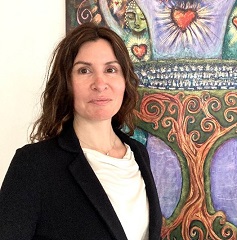
Full-Time Faculty
Dr. Julie Vogel is a Licensed Professional Counselor with a Masters in Mental Health Counseling and a Doctorate in Counseling Education and Supervision. Dr. Vogel has over thirty years of experience working with clients through community agencies and private practice in both rural and urban settings. She has served as the Regional Director for an agency focusing on adoption and has managed a facility focused on the treatment of chronic and severe mental illness. Dr. Vogel has distinct expertise in the treatment of substance abuse disorders. She facilitates educational workshops on topics related to parenting, adoption, emotional regulation and personal safety. She is also a qualified supervisor for professionals seeking licensure in the field of mental health. Dr. Vogel has previously provided course instruction at South University in Virginia Beach, VA. Dr. Vogel identifies as an advocate for those who seem to have no voice in our society due to systemic barriers. Her philosophy for clinical treatment is derived from a place of strength and optimism, as she believes all individuals have the capacity to create a meaningful and fulfilling life based on their vision of the future.
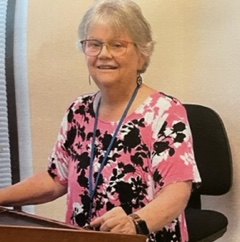
CMHC Program Guide
The Clinical Mental Health Counseling Program Guide contains information specific to students enrolled in the Master of Arts in Clinical Mental Health Counseling program at South University. It is the responsibility of all students to be knowledgeable about the policies, procedures, regulations and expectations contained within. If at any time there is a conflict between the Program Guide and the Academic Catalog, the Academic Catalog will take precedence.
This Guidebook has been prepared by the CMHC program. Information in it maybe be modified, supplemented or discontinued with or without notice.
To view the South University, West Palm Beach Master of Arts in Clinical Mental Health Counseling (CMHC) Program Guide, click HERE.
Sample Syllabi
Master of Arts in Clinical Mental Health Counseling Course Syllabi Samples
The syllabi listed below represent the courses in the Clinical Mental Health Counseling Program. They are provided for informational purposes only and should not be interpreted as the “official” syllabus for the course.
CNS6051, Diagnostics of Psychopathology and Treatment
CNS6161, Counseling Techniques
CNS6313, Professional Orientation and Ethics
CNS6425, Clinical Mental Health Counseling
CNS6529, Research and Statistical Evaluation
CNS6535, Clinical Mental Health Appraisal I
CNS6565, Multicultural Foundations
CNS6602, Lifestyle and Career Development
CNS6709, Couples, Marital, and Family Dynamics
CNS6775, Counseling Administration, Advocacy, Supervision and Policy
CNS6901, Diagnosis and Treatment of Addictive Disorders
CNS7510, CNS7610, CNS7611, Internship IA, Internship IIA, Internship IIB
CNS7950, Child/Adolescent Psychopathology and Treatment
Outstanding Education for Remarkable Careers
We're committed to helping our graduates make an impact in their professional and personal lives. We applaud our alumni and the difference they make. Check out what some of our counseling and psychology graduates have to say.
What's New
Latest News and Blogs

Apr 10, 2024
Alumni Spotlight: BBA Degree Gives Grad Versatility
After doing research online, Shanna-Kay found South University’s online programs. Because she already had a job, being able to take classes online on her schedule was valuable.

Apr 09, 2024
Savannah Scrubs Camp 2024
Discover what took place during the 2024 Scrubs Camp at the Savannah campus of South University.

Mar 26, 2024
How to Create and Lead a Strong Team
Learn tips for building and maintaining a team and fostering healthy collaboration and success.

Mar 21, 2024
Alumni Spotlight: Leveling up in MSN and DNP Programs
After completing the online MSN FNP program in 2019, Glynn Standifer decided to advance her education further and enrolled in our Doctor of Nursing Practice (DNP) program.

Mar 20, 2024
What is Health Informatics?
Health informatics sits at the intersection of healthcare, information technology, and data science.

Mar 06, 2024
Alumni Spotlight: Equipped for Success Across Fields
South University graduate Lyesha Gaines is a shining example showing that a college degree may open multiple doors and does not limit you to one job (or industry) your whole life.


